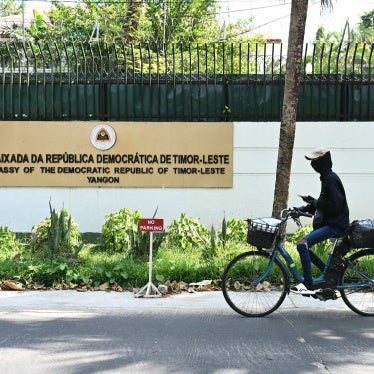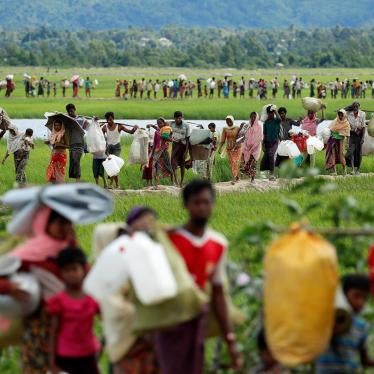As we commemorate the 70th anniversary of the Genocide Convention, I wish to address the crucial role of the International Criminal Court in realizing its ideals.
This year also marks the twentieth anniversary of the adoption of the ICC’s founding treaty in Rome. At the time, some questioned the need for the court—that perhaps the horrors of the 20th century that spurred the adoption of the Genocide Convention were behind us. Instead, it’s clear that the ICC is needed now more than ever. Last month’s report of the fact-finding mission on Myanmar, which flagged possible genocide of the Rohingya, underscores this point.
It was the singular determination of a group of like-minded states that resulted in the creation of the ICC. But as long as the court does its job, it will stir fierce opposition. This week’s hyperbolic speech from the US government in anticipation of an ICC investigation in Afghanistan is a stark reminder of what’s at stake.
While the global demand for accountability has increased, the will to deliver it has weakened. The veto by permanent members of the UN Security Council of a much-needed resolution referring Syria to the ICC is the best example of this disturbing trend.
There are glimmers of hope. In the wake of the Security Council’s failure in Syria, the General Assembly established an international mechanism to preserve evidence of crimes. And last week, a panel of ICC judges confirmed the court’s jurisdiction over the mass deportation of Rohingya from Myanmar to Bangladesh as a crime against humanity.
Still, the climate for a Security Council referral of Myanmar – critical to address the full scale of criminality - remains chilly. In the meantime, the Human Rights Council is well-positioned to create a Syria-type mechanism for Myanmar to preserve a path to justice.
ICC member countries – and non-members – should increase efforts to ensure justice for genocide and other crimes. The court has shortcomings, but greater resources would help it handle its increased caseload and engage better with victims. And states should be prepared to defend the court’s mandate and independence in the face of politicized opposition to its work. Victims of the worst crimes, including genocide, deserve nothing less.








